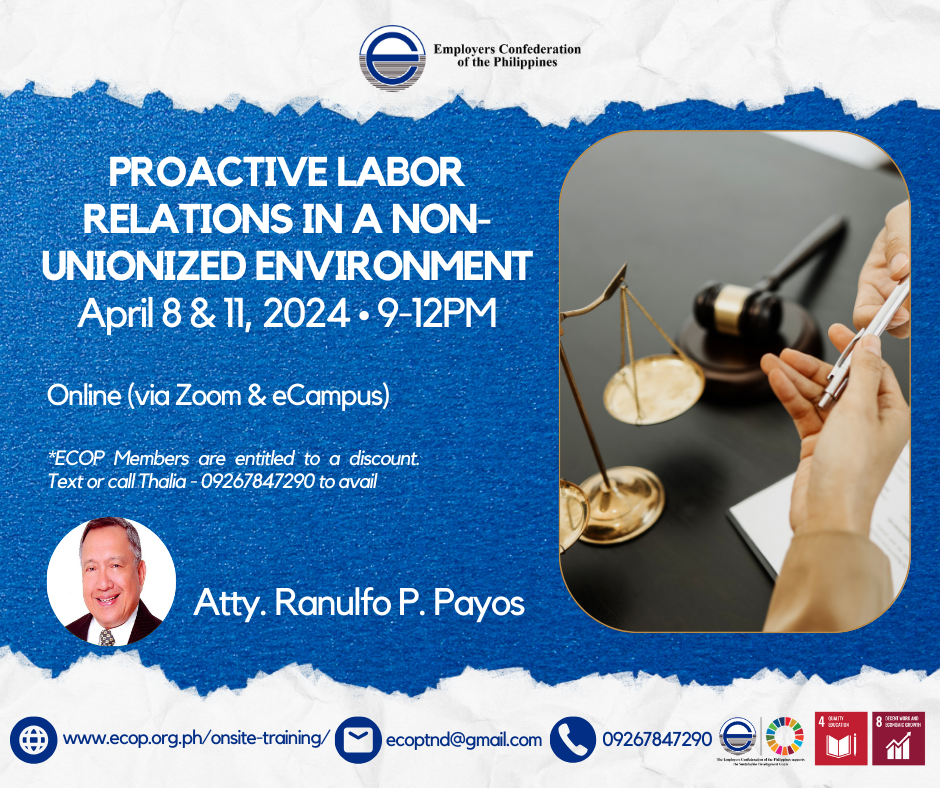President Rodrigo Roa Duterte signed the expanded maternity leave law on 20 February 2019, beating the 30-day deadline for the proposed measure to lapse into law.
The new law provides for a longer duration of maternity leave for mothers to have more time to rest from their pregnancy, fathers to spend more time with their loved ones, and for children to be better fed.
Under the previous law, employed women are entitled to 60 days of paid leave for normal delivery and 78 days for cesarean delivery.
On the other hand, the new law contains the following salient provisions:
- all working mothers in the government and private sector are guaranteed with 105 days of paid maternity leave credits regardless of whether the delivery is normal or via caesarian section;
- 7 days out of the 105 days may be transferable to fathers;
- additional 15 days of paid leave will be granted to single mothers if qualified under the solo parents’ welfare act (R.A. No. 8972);
- option to extend leave for another 30 days without pay, provided that the employer is given due notice in writing at least 45 days ahead before the end of the maternity leave;
- for cases of miscarriage or emergency termination of pregnancy, a 60-day paid maternity leave shall be granted to a female worker.
The new law now applies to every instance of pregnancy, removing the 4-pregnancy cap. It shall cover all female workers regardless of civil status.
Maternity benefits shall also be given to married and unmarried female workers in the informal economy, provided that they have remitted to the Social Security System at least three-month contributions in the 12-month period immediately preceding the semester of her childbirth, miscarriage, or emergency termination of pregnancy.
Female workers who are neither voluntary nor regular members of the SSS shall be governed by the Philippine Health Insurance Corporation (Philhealth).
It shall be noted that to be qualified as a beneficiary, the female should be:
- member of the SSS
- has paid at least 3 months contributions in the 12-month period immediately preceding the semester of her childbirth, miscarriage or emergency termination of pregnancy
In addition, the new law provides for a non-discrimination provision, stating that “No employer whether in the public or private sector shall discriminate against the employment of women in order to avoid the benefits provided for in this Act”.
Lastly, the new law provides for penalties to whoever fails or refuses to comply with its provisions with a fine between P20,000.00 up to P200,000.00 and imprisonment between 6 years to 12 years.
ECOP finds Section 5 (c) of the new law which states “employers from the private sector shall be responsible for payment of the salary differential between the actual cash benefits received from the SSS by the covered female workers and their average weekly or regular wages, for the entire duration of the maternity leave” highly disturbing.
This is because an employer is liable to pay not only the SSS premium contributions but also the salary differential between the actual benefits received by the worker from the SSS and their weekly and regular wages. It should be noted that as it is, employers are already paying the premium contributions of an employee for the SSS, Philhealth, employees compensation, and Pag-Ibig as mandated by law.
ECOP has consistently held that this provision is not in line with applicable law, policy, and international standards.
Click here to download: RA 11210 “105-day Expanded Maternity Leave Law”








